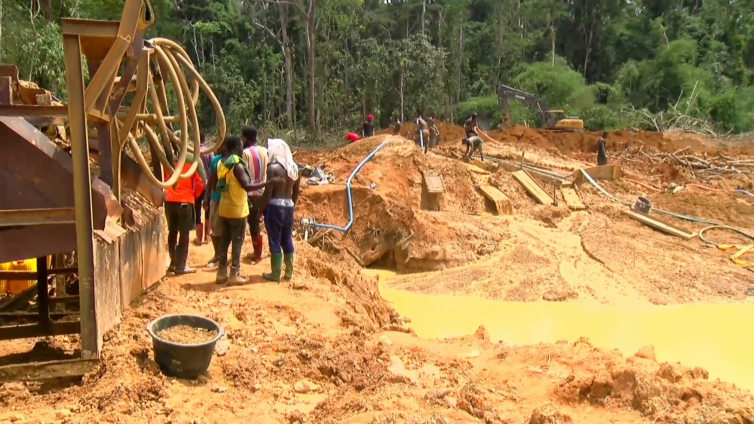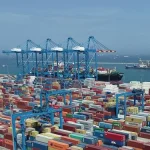Organised labour, led by the Trades Union Congress (TUC), has threatened a nationwide strike over the illegal mining menace.
The union has therefore given the government till the end of September to take decisive action to address the escalating galamsey (illegal mining) crisis.
In a statement issued by Joshua Ansah, Secretary General of the TUC, organised labour demanded the immediate declaration of a state of emergency in all areas affected by illegal mining.
The group also called for a halt to all mining activities in forest reserves, the establishment of special courts to fast-track the prosecution of galamsey operators, and the deployment of the military to remove and destroy all mining equipment in affected areas.
Mr Ansah stressed that the government’s failure to act swiftly and decisively on the galamsey menace has resulted in severe environmental degradation, including the destruction of rivers, farmlands, and forest reserves.
The statement added that if no concrete measures are taken by the end of September, organised labour will have no choice but to embark on a series of demonstrations and a nationwide strike to force the government’s hand.
Their frustration is coming at a time when there is a general call to ban small-scale mining because of its devastating impact on water bodies.
Illegal mining, popularly referred to as galamsey, has been a major issue in Ghana, with recent reports by the media indicating that the practice has led to the destruction of several rivers, including River Ankobra, River Bia, River Pra, and River Tano.
The government has taken several steps to eradicate illegal mining, but the problem persists due to the high demand for gold and other precious minerals.
Recently, Ghana Water Limited (GWL) announced severe water supply challenges in Cape Coast, Elmina, and surrounding communities due to galamsey activities in the Pra River.
In a statement, GWL explained that water sources have been polluted beyond reasoning limits, affecting processing and distribution for domestic and industrial use.
















